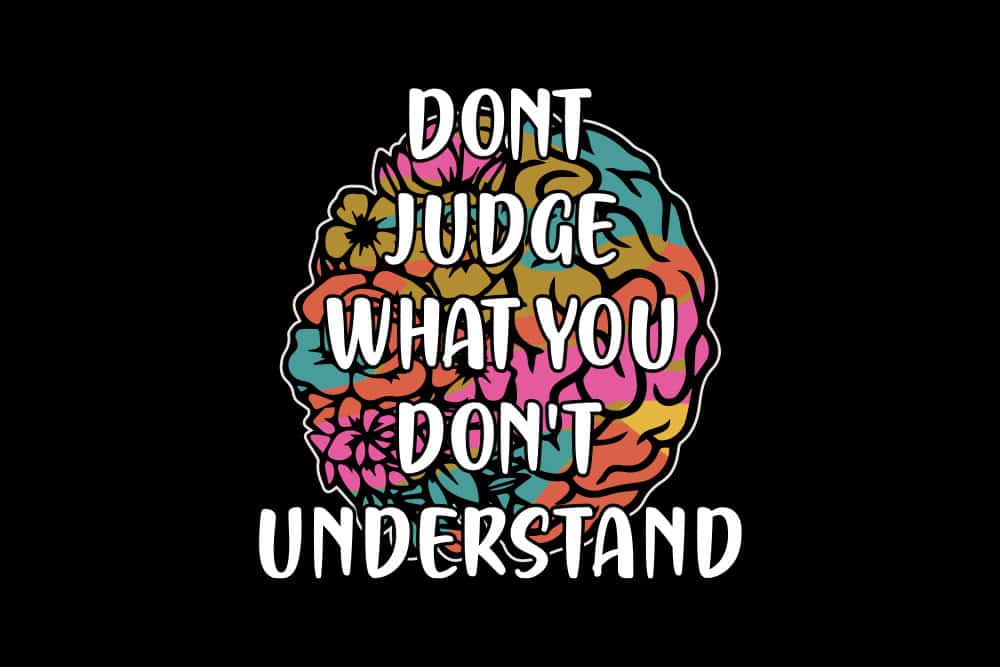
While most of us have some understanding of mental health and the importance of looking after ourselves, the truth is that many of us fail to get help with mental health problems. One main reason people fail to access the help they need is because of the stigma around mental health problems.
Stigma, as defined by the APA Dictionary of Psychology, is ‘the negative social attitude attached to a characteristic of an individual that may be regarded as a mental, physical, or social deficiency’. Unfortunately, many people in the UK who are suffering from mental health issues experience stigma both at work and in their everyday personal lives. This stigma can stop a person from seeking out treatment to help them manage their condition. Without treatment, mental health conditions often become worse over time.
This article looks at why there is stigma around mental health and outlines ways in which we can combat mental health stigma in the workplace and in our everyday lives.
What is Stigma in Mental Health?
When most of us consider health issues at work, the first things that spring to mind are physical injuries or illnesses. However, of the 17 million people in the UK who reported a work-related illness in the 2020 to 2021 period, around 822,000 stated that their condition was due to poor mental health, according to the Health and Safety Executive (HSE). In reality this figure is likely much higher, due to the mental health stigma.
As we have already mentioned, Mental health stigma is when we negatively judge or have a fear of negative judgement, of our own mental health or that of someone else. Many people erroneously believe that a person struggling with mental health problems may be a danger to others or themselves. Some people view admitting to mental health issues in themselves, or acknowledging them in others, as shameful or weak.
Approximately nine out of every 10 people who are suffering from a mental health problem have experienced stigma or discrimination of one kind or another, according to the UK Mental Health Foundation.
Mental Health Courses
Our mental wellness courses help overcome the stigma associated with mental health challenges and provide practical techniques for managing such challenges in professional settings. The courses aim to protect employees’ mental well-being, improve productivity and enhance work and personal life balance.
Why the Stigma is a Problem
These types of mistaken beliefs and stereotypes cause us to avoid seeing or confronting mental health issues when they come up. This is a major problem both in the workplace and in our private lives.
When we ignore or hide mental health issues, it prolongs suffering. Just like an untreated injury, if mental health conditions are not taken care of, they can become worse and cause more damage.
Untreated stress becomes anxiety. Continued anxiety leads to depression. This is often worsened by feelings of loneliness. Many people turn to substance abuse to manage the pain and find themselves trapped in a downward spiral.
These problems don’t just impact how we feel mentally. Our professional careers, relationships and physical health can all suffer as a result.
Examples of Mental Health Stigma
Whether we’re conscious of it or not, we are all aware of stigma around mental health issues. Mental health stigma is the result of how we have been brought up, and the past general societal beliefs about mental illness and mental health problems. This is, in part, due to the negative portrayal of mentally ill people in the media.
‘Ignore It and It Will Go Away’
Often, if we see someone else with a mental health problem, there is a natural tendency to just ignore it. Many people believe that enquiring about another person’s mental health is none of their business. There is an assumption that the person will simply get over the problem on their own. Frequently, people simply do not know what to do, or say, when confronted with someone experiencing mental health difficulties.
When we see an injured co-worker with a limp, we may naturally ask the person what happened and if they are okay. In turn, the person with the limp may describe having had a fall or having been involved in an accident of some sort. In the majority of cases, there is no embarrassment or awkwardness surrounding these interactions.
However, if we notice someone with signs of a mental health issue such as anxiety, many of us will look the other way. If we do ask, there is an expectation that the other person will simply say, “I’m fine” and we all move on.
Judging and Fear of Being Judged
In the worst-case scenario, we may start to make negative assumptions about the person or talk about them behind their back. Perhaps, we even begin treating them differently. A person’s competence to do their job correctly may be questioned or they may be ostracised by their colleagues.
It is not just mental health disorders we have a stigma about, but also mental health treatment. We don’t think twice about helping for a physical problem, but sometimes we have a negative view of treatment for mental health conditions. For example, people who are taking medication can find that they are looked down upon for it or thought to be unstable.
Mental health stigma can also affect the ways in which we think about ourselves. Many people ignore their own mental health problems as they do not want to be thought of as being weak or, they do not wish to acknowledge that they have an issue.
How to Deal with Mental Health Stigma in the Workplace
If we are serious about mental health, we must start by eliminating the stigma around mental health problems. In order to do this, we have to recognize that mental health stigma exists in every workplace.
You can help to fight against mental health stigma in the workplace by adopting an open and unbiased attitude towards mental health. Employees and colleagues should be encouraged to ask about someone’s mental health rather than make negative assumptions.

A focus should be placed on acceptance rather than judgement.
Most importantly, we need to act if we see that we are developing mental health issues in ourselves and if we see someone else struggling with mental health issues.
Ways to Raise Mental Health Awareness at Work
Anxiety, stress and depression levels in UK workers are now so high that the HSE has developed the Mental Health at Work program to assist people in finding help. These programs are designed to provide people with the resources they need to access mental health services. They also serve to inform employers about ways in which they can improve mental health awareness in the workplace.
Having staff undertake accredited mental health awareness training is also vital in the fight against mental health stigma. This training gives people a better understanding of how to recognise mental health problems in themselves and others, and how to find and provide support.
Human Focus is a respected health and safety training provider with a variety of online courses available. The mental health courses are designed to heighten awareness of mental health issues in the workplace. These courses also provide people with the skills they need to cope with stress, anxiety, depression, and other common mental health problems. No prior learning or qualifications are required, and the courses can be taken in increments at your convenience.





















